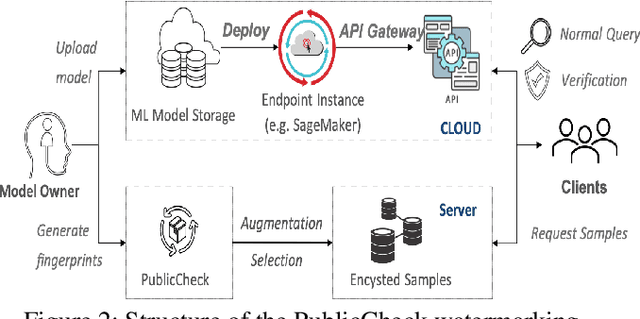Sidharth Agarwal
Integrity Fingerprinting of DNN with Double Black-box Design and Verification
Mar 23, 2022



Abstract:Cloud-enabled Machine Learning as a Service (MLaaS) has shown enormous promise to transform how deep learning models are developed and deployed. Nonetheless, there is a potential risk associated with the use of such services since a malicious party can modify them to achieve an adverse result. Therefore, it is imperative for model owners, service providers, and end-users to verify whether the deployed model has not been tampered with or not. Such verification requires public verifiability (i.e., fingerprinting patterns are available to all parties, including adversaries) and black-box access to the deployed model via APIs. Existing watermarking and fingerprinting approaches, however, require white-box knowledge (such as gradient) to design the fingerprinting and only support private verifiability, i.e., verification by an honest party. In this paper, we describe a practical watermarking technique that enables black-box knowledge in fingerprint design and black-box queries during verification. The service ensures the integrity of cloud-based services through public verification (i.e. fingerprinting patterns are available to all parties, including adversaries). If an adversary manipulates a model, this will result in a shift in the decision boundary. Thus, the underlying principle of double-black watermarking is that a model's decision boundary could serve as an inherent fingerprint for watermarking. Our approach captures the decision boundary by generating a limited number of encysted sample fingerprints, which are a set of naturally transformed and augmented inputs enclosed around the model's decision boundary in order to capture the inherent fingerprints of the model. We evaluated our watermarking approach against a variety of model integrity attacks and model compression attacks.
 Add to Chrome
Add to Chrome Add to Firefox
Add to Firefox Add to Edge
Add to Edge